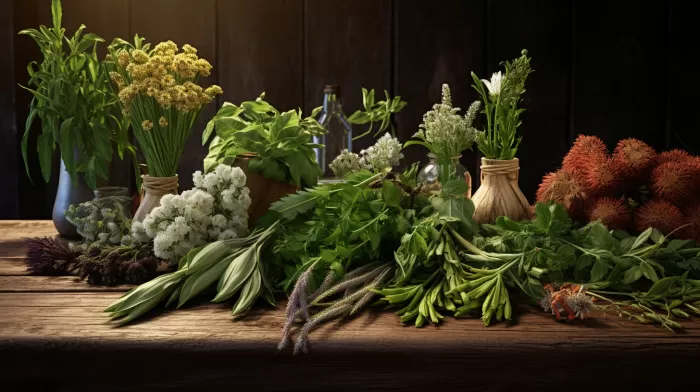Menopause is a stage in life that every woman has to face, typically accompanied by a roller coaster of hormonal changes, mood swings, difficulty sleeping, and physical discomfort. With proper self-care, a balanced diet, and regular exercise, managing menopause can become easier. However, for immediate relief from menopausal symptoms, you can consider trying some herbal remedies.
Black Cohosh
As discovered in clinical trials with women between the ages of 50 to 59, black cohosh can be effective in improving menopausal symptoms by 26%. Combining it with other herbs, such as St. John’s Wort and Milk Thistle, can potentially reduce an individual’s overall symptoms by 33 to 41%. The recommended dosage ranges between 20 mg and 160 mg.
Ginseng
A well-known herb with multiple uses, Ginseng can help manage menopausal symptoms, improve overall well-being, and increase arousal. Clinical trials have shown Ginseng’s effectiveness in battling fatigue, depression, and loss of sex drive.
Red Clover
Red Clover contains genistein, daidzein, formononetin, and biochanin A compounds. While the evidence remains mixed, some studies suggest that these compounds may have estrogen-like effects, decreasing the occurrence of hot flashes.
Hops
Anxiety, restlessness, and sleep disturbances are common menopausal symptoms that can be alleviated with the help of Hops. Some animal studies also suggest its effectiveness at reducing estrogenic activity on the uterus.
Valerian
Utilized for centuries as a natural sleep aid by the Greeks, Romans, Chinese, Europeans, and American Indians, Valerian is a proven sleep enhancer. Modern clinical trials confirm maintained sleep quality upon use.
Dong Quai
Dong Quai, the “feminine tonic,” has long been used in traditional Chinese medicine for treating menopausal change. Though there are currently no clinical trials to back up its efficacy, it continues to be in widespread use in China.
St. John’s Wort
St. John’s Wort has been extensively studied for its benefits in treating depression. When compared with antidepressants, it has shown between 61 to 75 percent efficacy without significant side effects associated with traditional medications. It is often used in conjunction with black cohosh as studies suggest a synergistic effect on reducing menopausal symptoms.
Speak to a Doctor First
As potent herbal remedies, many of these treatments interact with other medications. If you are currently taking any medication or hormone replacement therapy (HRT), it’s crucial to consult your physician before starting on any of the above-listed herbs.



